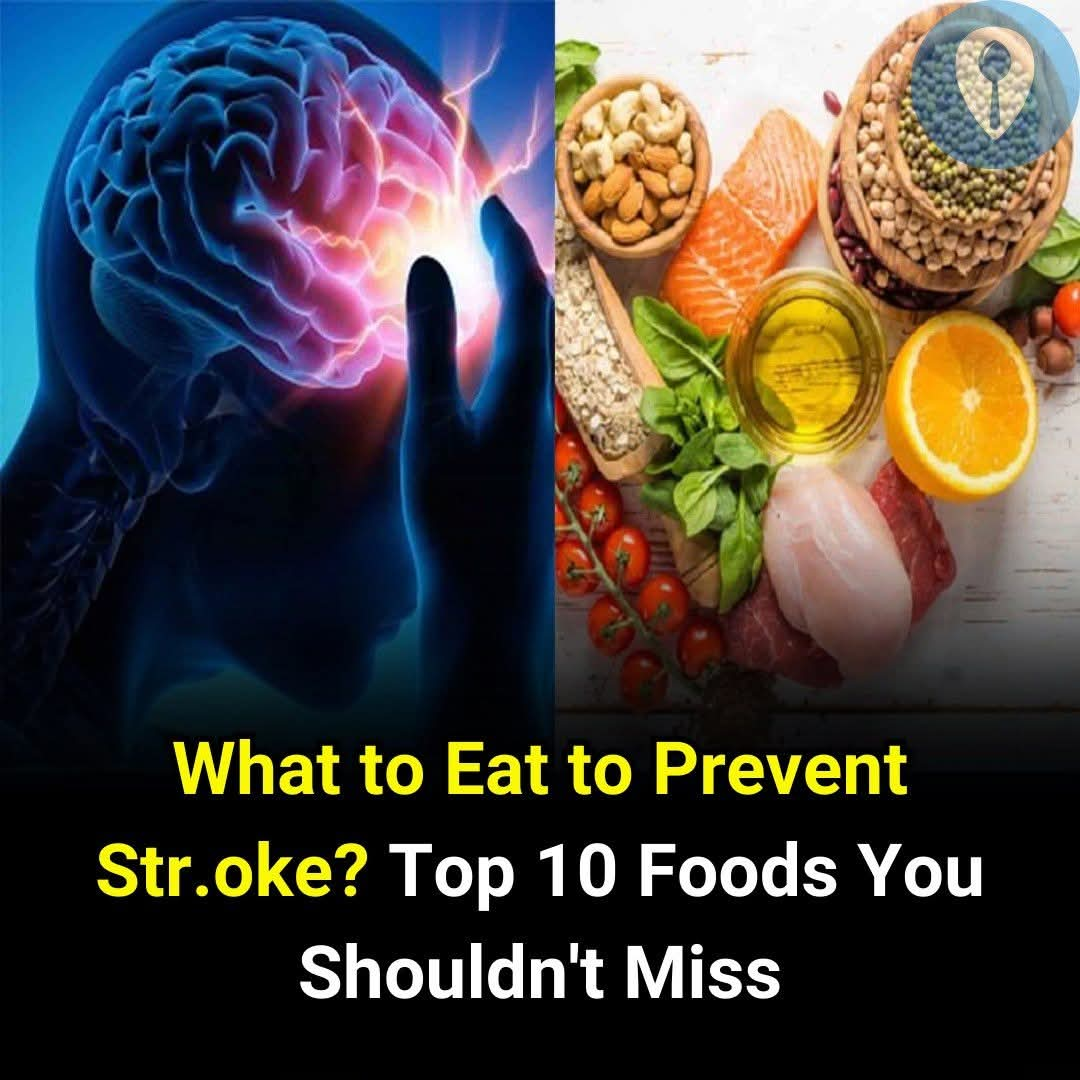What to Eat to Prevent Stroke? 10 Powerful Foods That Protect Your Brain and Arteries

Stroke is a serious medical emergency that can change your life in seconds. Thankfully, your daily diet plays a big role in lowering your risk. By choosing the right foods, you can keep your blood vessels healthy, reduce inflammation, and maintain normal blood pressure—three key factors in stroke prevention.
Here are 10 foods you should include in your diet to help reduce the risk of stroke:
1. Leafy Green Vegetables (Spinach, Kale, Swiss Chard)
These greens are loaded with vitamin K, folate, and antioxidants that help reduce blood clotting and inflammation. They also support healthy blood pressure levels.
2. Fatty Fish (Salmon, Mackerel, Sardines)
Packed with omega-3 fatty acids, fatty fish reduce inflammation, lower triglycerides, and prevent the formation of blood clots—all factors that help reduce stroke risk.
3. Berries (Blueberries, Strawberries, Blackberries)
Rich in flavonoids and antioxidants, berries help protect blood vessels and improve brain function. They also reduce oxidative stress and lower blood pressure.
4. Whole Grains (Oats, Brown Rice, Quinoa)
Whole grains are a great source of fiber, which helps control cholesterol and blood sugar levels—two key stroke risk factors.
5. Avocados
Avocados are rich in healthy fats and potassium. They help regulate blood pressure, improve cholesterol levels, and support overall cardiovascular health.
6. Beans and Lentils
These plant-based protein sources are high in fiber and low in fat. They help control blood sugar, lower cholesterol, and provide a steady source of energy.
7. Nuts (Walnuts, Almonds, Pistachios)
A handful of nuts each day can reduce bad cholesterol and provide healthy fats that support heart and brain function.
8. Olive Oil
A staple in the Mediterranean diet, olive oil contains monounsaturated fats and antioxidants that reduce inflammation and improve heart health.
9. Garlic
Garlic has natural blood-thinning properties, lowers blood pressure, and improves circulation—making it a powerful anti-stroke food.
10. Tomatoes
Tomatoes are rich in lycopene, an antioxidant that helps reduce inflammation and protect blood vessels from damage.
Extra Tips:
- Drink water: Staying hydrated helps your blood flow smoothly.
- Limit salt: Too much sodium raises blood pressure.
- Cut back on sugar and processed foods: These contribute to obesity and diabetes, which raise stroke risk.
FAQs
Q: Can certain foods trigger a stroke?
Yes. High-sodium, high-fat, and sugary processed foods can increase blood pressure and cholesterol, raising stroke risk.
Q: How important is potassium in preventing stroke?
Very important. Potassium helps regulate blood pressure and keeps the heart rhythm stable. Bananas, avocados, and sweet potatoes are good sources.
Q: Does drinking coffee help or harm?
Moderate coffee intake (1–2 cups daily) may lower stroke risk due to its antioxidant content—but avoid sugary or creamy additions.
Final Thought:
A heart-healthy diet is a brain-healthy diet. Eat more of these natural, protective foods and stay active—it’s one of the best ways to protect yourself from stroke, now and in the years to come.






